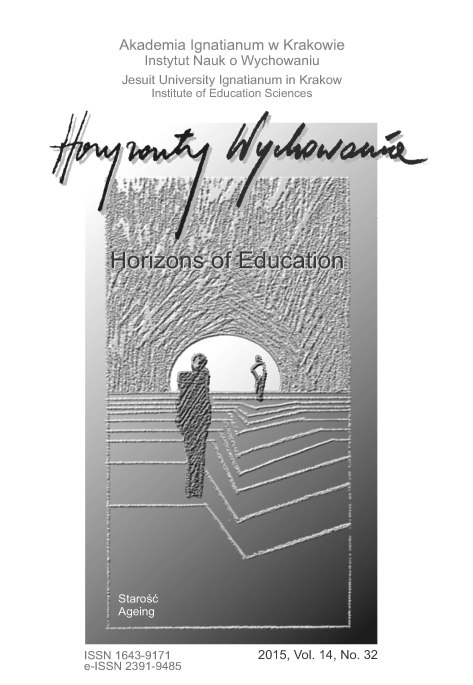Doświadczenie pracy - antropologia oraz aksjologia osobistych i społecznych relacji w perspektywie rozwoju człowieka
Experience of Work - Anthropology and Axiology of Personal and Social Relations from the Vantage Point of Human Development
Author(s): Krystyna AblewiczSubject(s): Anthropology
Published by: Uniwersytet Ignatianum w Krakowie
Keywords: pedagogical anthropology; ethos of work; personal human development; alienation; values; dialogue; pleasure
Summary/Abstract: Autorka wychodzi z założenia, że konstytutywne dla doświadczenia sensu wykonywanej pracy jako rodzaju aktywności człowieka ukierunkowanej na dobro publiczne jest doświadczenie dobra osobistego. Ono bowiem w pierwszej kolejności pozwala na faktyczne realizowanie dobra wspólnego. Poczucie dobra osobistego zostaje zinterpretowane w kontekście holistycznej koncepcji człowieka, w której pozostaje on świadomy zachodzących w nim powiązań pomiędzy myślami, przeżyciami oraz towarzyszącymi im cielesnymi doznaniami. Jednocześnie też autorka zwraca uwagę, że samo doświadczenie pracy może być dla człowieka doświadczeniem rozwojowo pozytywnym oraz destruktywnym. O tym, jakie ono jest, decyduje ethos pracy, na który składają się zarówno warunki zewnętrzne, organizowane przez pracodawcę, jak i warunki osobowe, za które jest odpowiedzialny sam pracujący. Na poszczególnych etapach rozważań autorka korzysta między innymi z tekstów Józefa Tischnera, Martina Bubera i Aleksandra Lowena. Zwłaszcza studia tego ostatniego stały się podstawą do wskazania empirycznego wskaźnika poczucia dobra osobistego, jakim jest cielesna przyjemność towarzysząca zaangażowanemu wykonywaniu określonych pracą zawodową czynności. The author assumes that experiencing personal good is constitutive for the meaningfulness of performed professional work as a kind of human activity aimed at the public good. This is because personal good experienced in the first place allows for the actual realization of the common good. The feeling of personal interest is interpreted in the context of the holistic concept of man, in which man remains conscious of the relationships between his thoughts, experiences and accompanying bodily sensations. At the same time the author points out that the experience of work may be either developmentally positive or destructive. It depends on the ethos of work, which comprises both external conditions, organized by the employers, and personal conditions, which are the responsibility of the employees themselves. In various parts of the text the author draws on the ideas of such author as Jozef Tischner, Martin Buber and Alexander Lowen. Especially the studies of Lowen were the basis of pinpointing the empirical indicator of the sense of personal good, which is the sensual pleasure accompanying the engaged performance of the activities determined by your professional work.
Journal: Horyzonty Wychowania
- Issue Year: 14/2015
- Issue No: 30
- Page Range: 11-29
- Page Count: 19
- Language: Polish

